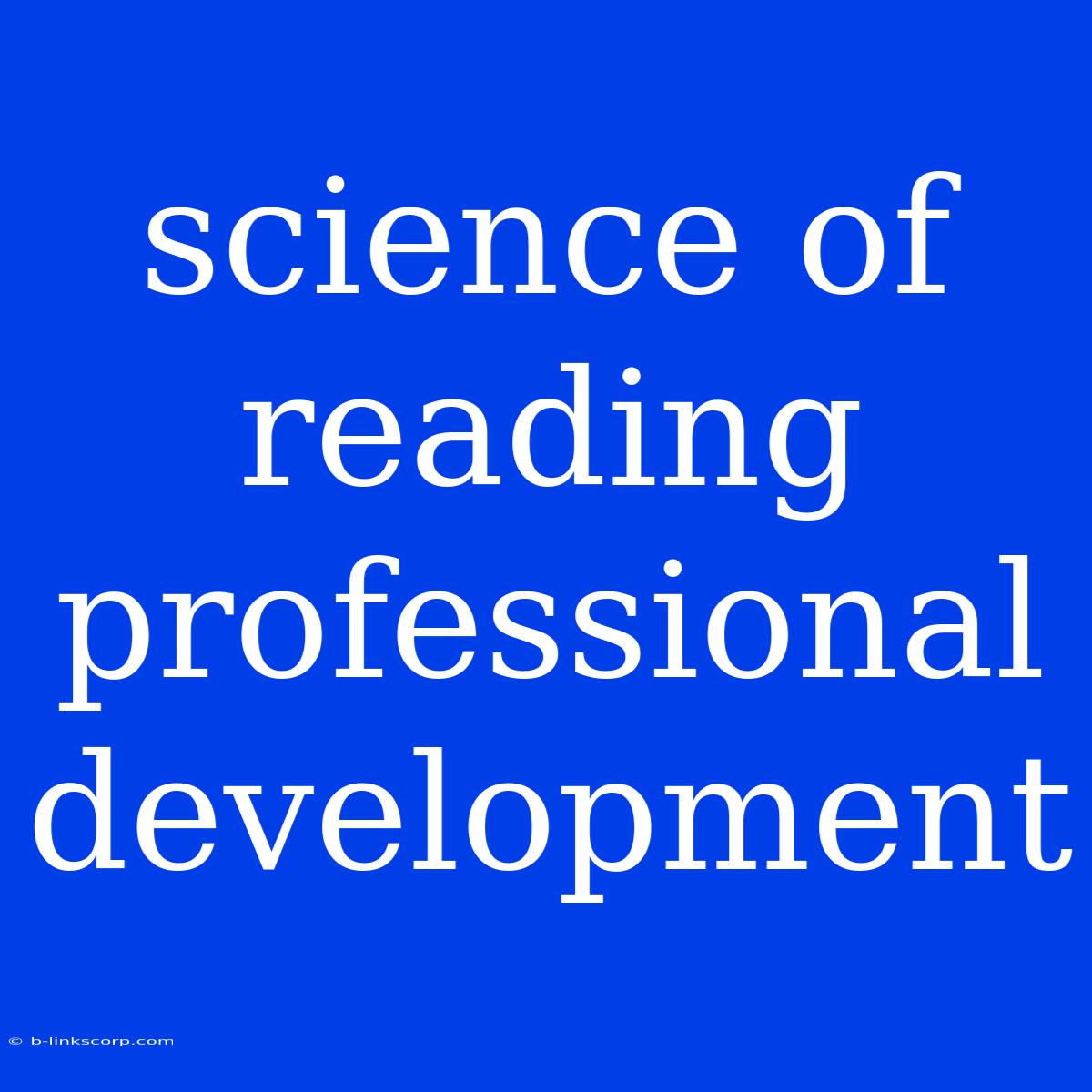The Science of Reading: Professional Development That Empowers Educators
The science of reading has emerged as a powerful framework to guide literacy instruction, emphasizing the importance of explicit and systematic teaching of foundational skills. For educators, navigating this new landscape requires dedicated professional development that equips them with the knowledge and tools to effectively implement evidence-based practices.
Why is Science of Reading Professional Development Crucial?
The traditional approach to literacy instruction has often relied on intuition and anecdotal evidence. However, research has consistently shown that effective reading instruction should be grounded in the science of reading, which underscores the critical role of:
- Phonological Awareness: Understanding the sounds of language and how they connect to letters.
- Phonics: The relationship between letters and sounds.
- Fluency: Reading smoothly and accurately.
- Vocabulary: Understanding the meaning of words.
- Comprehension: Understanding what is read.
Professional development is vital because:
- It provides educators with a deeper understanding of the science of reading: This includes the research basis, key principles, and the importance of systematic instruction.
- It helps educators implement evidence-based practices: It equips them with practical strategies and tools to effectively teach reading skills.
- It fosters a shared understanding among educators: Collaborative learning fosters a common language and approach to literacy instruction.
- It supports ongoing learning and growth: It creates a culture of continuous improvement and adaptation based on student needs and data.
Effective Science of Reading Professional Development: Key Components
1. Focus on Foundational Skills: The core of effective professional development lies in building educators' understanding and proficiency in teaching foundational skills. This includes:
- Phonological Awareness: Explicitly teaching students to identify and manipulate sounds in words.
- Phonics: Systematic and explicit instruction on the letter-sound relationships and applying this knowledge to decode and encode words.
- Fluency: Teaching strategies to read fluently, including repeated reading, choral reading, and guided oral reading.
2. Deep Dive into Research: Professional development should not just present information, but also explore the research behind the science of reading.
- Evidence-Based Practices: Highlight the research that supports various teaching methods and strategies.
- Brain Science: Explain how the brain learns to read and the importance of specific areas and pathways.
3. Practical Application: It's not enough to learn about the science of reading – educators need to see it in action.
- Modeling: Experienced educators can demonstrate effective teaching strategies in real-world classroom scenarios.
- Collaborative Planning: Teachers can work together to create lesson plans and implement new strategies in their classrooms.
- Data Analysis: Educators can learn how to collect and analyze data to monitor student progress and make informed decisions about instruction.
4. Ongoing Support and Coaching: Professional development shouldn't be a one-time event.
- Continued Learning: Provide opportunities for ongoing learning and sharing of best practices.
- Coaching and Mentorship: Offer personalized support and guidance to help educators implement new strategies and address challenges.
Conclusion: Investing in the Future of Reading
By prioritizing high-quality, evidence-based professional development that is aligned with the science of reading, educators can:
- Improve student outcomes: Help all students, especially those at risk of reading difficulties, reach their full potential.
- Build a strong foundation for literacy: Equip students with the foundational skills they need to become confident and successful readers.
- Create a culture of literacy: Foster a love of reading and learning that extends beyond the classroom.
Investing in science of reading professional development is an investment in the future of literacy for all children. It's a commitment to providing educators with the knowledge, skills, and support they need to empower every student to become a successful reader.

